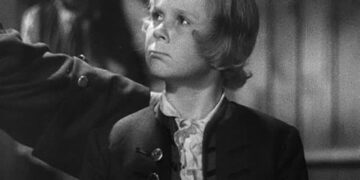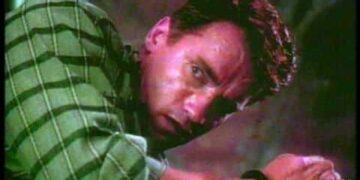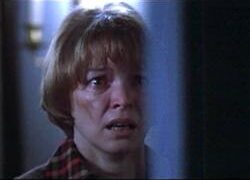“Denial” is a 2016 British-American film directed by Mick Jackson and based on the book “History on Trial: My Day in Court with a Holocaust Denier” by Deborah Lipstadt.
The story revolves around the real-life legal battle between Lipstadt, an American historian and Holocaust scholar, and David Irving, a British historian who sued her for libel after she accused him of Holocaust denial.
This film is not only an engaging courtroom drama but also a thought-provoking exploration of the importance of historical truth and the power of free speech.
In this article, we will delve into the world of “Denial,” comparing the book and the movie and discussing the various aspects of this fascinating story.
From the book summary and key characters to the movie summary and cast, we will cover it all. Additionally, we will examine the historical context, film locations, memorable quotes, the soundtrack by Howard Shore, and even tips for cosplay and dressing like the characters.
So, let’s begin unraveling the intricacies of “Denial.”
Denial: Book Summary and Key Characters
“History on Trial: My Day in Court with a Holocaust Denier,” written by Deborah Lipstadt, recounts her legal battle with David Irving, who sued her for libel for describing him as a Holocaust denier in her book “Denying the Holocaust.”
The book provides a detailed account of the events leading up to the trial, the trial itself, and its aftermath. Lipstadt also describes the challenges she faced while defending herself and her work, as well as the emotional toll the case took on her.
The key characters in the book include Deborah Lipstadt, an American historian and Holocaust scholar; David Irving, a British historian who has written numerous books on World War II and the Holocaust; and Richard Rampton, the British lawyer who represented Lipstadt in the trial.
Other important figures in the book are Anthony Julius, Lipstadt’s solicitor, and various expert witnesses who testified on her behalf.
Denial: Movie Summary and Cast
The movie “Denial” closely follows the storyline of Lipstadt’s book. The film begins with Lipstadt (played by Rachel Weisz) giving a lecture on Holocaust denial, during which Irving (portrayed by Timothy Spall) interrupts and accuses her of libel.
Lipstadt then teams up with a group of British lawyers, led by Rampton (played by Tom Wilkinson) and Julius (portrayed by Andrew Scott), to defend herself in court.
The movie successfully captures the intensity and drama of the courtroom scenes, as well as the emotional journey of Lipstadt and her legal team.
In addition to the main cast, the film features several notable supporting actors, including Caren Pistorius as Laura Tyler, Lipstadt’s researcher, and Jack Lowden as James Libson, a member of her legal team.
Parent Guide: What to Expect When Watching or Reading Denial
“Denial” is rated PG-13 for thematic material and brief strong language. The movie contains intense courtroom scenes and discussions of the Holocaust, which may not be suitable for younger viewers.
However, for older teenagers and adults, the film offers a thought-provoking exploration of historical truth, free speech, and the power of perseverance.
The book, on the other hand, delves deeper into the legal proceedings and the historical context, making it an informative and educational read for those interested in the subject matter.
It is suitable for mature readers, particularly those with an interest in history, law, or the Holocaust.
The Historical Context: When and Where Denial Takes Place
“Denial” is set in the late 1990s, with the libel trial taking place in London in 2000. The story unfolds in various locations, including the United States, where Lipstadt teaches and lectures, and the United Kingdom, where the trial occurs.
The film also features scenes set in Auschwitz, Poland, as Lipstadt and her legal team visit the concentration camp to gather evidence for their case.
The historical context of “Denial” is crucial to understanding the significance of the trial and its implications for Holocaust scholarship and historical truth. The film and book explore the rise of Holocaust denial and the importance of preserving and defending the historical record of the Holocaust.
Behind-the-Scenes: Film Locations and Production Insights
The filming of “Denial” took place primarily in London, where the trial scenes were shot at the Royal Courts of Justice and other locations around the city.
The production also filmed in Krakow, Poland, for the scenes set in Auschwitz, and in Atlanta, Georgia, where Lipstadt teaches at Emory University.
Mick Jackson, the director of “Denial,” worked closely with Lipstadt and the film’s screenwriter, David Hare, to accurately portray the trial and its significance.
Hare conducted extensive research, including reading the trial transcripts and interviewing Lipstadt, to create a screenplay that captured the essence of the story.
Memorable Quotes and Scenes from Denial
“Denial” is filled with memorable quotes and powerful scenes that capture the essence of the story and its themes.
One of the most poignant moments in the movie is when Lipstadt, Rampton, and their team visit Auschwitz, and Rampton delivers an emotional speech about the importance of preserving the truth of the Holocaust.
Another memorable quote comes from Lipstadt, who says, “The only way to prove the Holocaust happened is to prove the Holocaust happened.” This statement reflects her determination to uphold historical truth and defend her work against Holocaust deniers like Irving.
The Soundtrack: Exploring Howard Shore’s Score
The soundtrack of “Denial” was composed by Howard Shore, an acclaimed composer known for his work on “The Lord of the Rings” trilogy and other films.
Shore’s score for “Denial” is subtle and evocative, adding emotional depth to the film and enhancing its dramatic moments.
The soundtrack includes orchestral pieces that reflect the emotional journey of Lipstadt and her legal team, as well as atmospheric tracks that capture the tension and drama of the courtroom scenes.
Shore’s music is an integral part of the film’s storytelling and adds an additional layer of meaning to the story.
Curiosities, Tips for Cosplay, and Dressing like the Characters
For those interested in cosplay or dressing like the characters from “Denial,” the film offers a variety of costume ideas.
The character of Deborah Lipstadt is often seen wearing professional attire, such as blouses, blazers, and skirts, while the lawyers, Rampton and Julius, are typically dressed in formal suits and wigs, as required by British court attire.
When visiting the Auschwitz scenes, the characters wear more casual clothing, such as jeans, jackets, and hats, appropriate for the somber and reflective nature of the visit. To complete the look, consider incorporating props such as books, legal documents, or a gavel to represent the courtroom setting.
The Real-Life Inspiration: Deborah Lipstadt’s Biography and Works
Deborah Lipstadt is an American historian and Holocaust scholar who has written extensively on the subject. She is currently the Dorot Professor of Modern Jewish History and Holocaust Studies at Emory University.
In addition to “History on Trial” and “Denying the Holocaust,” Lipstadt has authored several other books, including “The Eichmann Trial” and “Antisemitism: Here and Now.”
Lipstadt’s legal battle with David Irving and her efforts to defend the historical truth of the Holocaust have had a significant impact on Holocaust scholarship and the understanding of Holocaust denial.
Her work continues to inspire and educate people on the importance of preserving and defending history.
Unraveling the Ending: Denial’s Conclusion Explained
The conclusion of “Denial” sees Lipstadt and her legal team emerge victorious in their libel trial against David Irving, with the judge ruling that Irving’s claims of Holocaust denial were “substantially true” and that he had manipulated historical evidence to suit his own ideological beliefs.
This ruling effectively discredited Irving as a historian and dealt a significant blow to the Holocaust denial movement.
The ending of the film and book serves as a powerful reminder of the importance of historical truth and the need to stand up against those who seek to distort or deny it.
The victory in the courtroom is not just a personal triumph for Lipstadt but also a triumph for the preservation of history and the memory of the Holocaust.
Sequels, Remakes, and Spin-offs: Expanding the Denial Universe
While there are no official sequels, remakes, or spin-offs of “Denial,” the story of Lipstadt’s trial and the themes it explores continue to resonate in various forms of media and literature. There are numerous books, documentaries, and films that deal with the Holocaust, Holocaust denial, and the challenges of preserving historical truth. These works serve to expand the “Denial” universe and deepen our understanding of the issues at play.
Mick Jackson’s Other Media and Similar Works to Denial
Mick Jackson, the director of “Denial,” has worked on numerous films and television projects throughout his career. Some of his other notable works include “The Bodyguard,” “Temple Grandin,” and “L.A. Story.” These films, while not directly related to “Denial,” showcase Jackson’s skill as a director and his ability to tackle diverse subject matter.
For those interested in exploring similar media to “Denial,” there are several films and documentaries that focus on the Holocaust and the challenges of preserving historical truth. These include “The Pianist,” “Schindler’s List,” and “Shoah.”
Exploring Deborah Lipstadt’s Other Works and Related Media
In addition to “History on Trial” and “Denying the Holocaust,” Deborah Lipstadt has authored several other books that delve into various aspects of the Holocaust and contemporary antisemitism.
These works, such as “The Eichmann Trial” and “Antisemitism: Here and Now,” offer valuable insights into the events of the Holocaust and the ongoing challenges faced by Holocaust scholars and survivors.
For those interested in exploring related media, there are numerous documentaries and films that focus on Holocaust denial and the pursuit of historical truth, such as “Mr. Death: The Rise and Fall of Fred A. Leuchter, Jr.” and “Conspiracy.”
Book Club Questions and Discussion Points for Denial
“Denial” offers numerous discussion points and questions for book clubs and readers. Some possible topics for conversation include the importance of historical truth, the challenges faced by Holocaust scholars, the role of free speech in society, and the legal and ethical implications of libel cases.
Denial-Inspired Video Games and Interactive Experiences
While there are no official video games or interactive experiences based on “Denial,” there are several educational games and virtual reality experiences that explore the Holocaust and related themes.
These interactive experiences can help deepen our understanding of the events of the Holocaust and the importance of historical truth.
Travel Guide: Visiting the Real-Life Locations of Denial
For those interested in visiting the real-life locations featured in “Denial,” a trip to London, where the trial took place, is a must. The Royal Courts of Justice, where the courtroom scenes were filmed, is open to the public and offers guided tours.
Additionally, a visit to Auschwitz in Poland provides a sobering and educational experience that serves as a powerful reminder of the Holocaust’s horrors and the importance of preserving its memory.
Conclusion: The Lasting Impact of Denial on History and Society
“Denial” is more than just a gripping courtroom drama; it is a powerful exploration of the importance of historical truth and the need to stand up against those who seek to distort or deny it.
Both the book and the movie serve as a testament to the resilience and determination of Deborah Lipstadt, who fought to defend the historical record of the Holocaust and ensure that the voices of its victims would not be silenced.
The lasting impact of “Denial” is a reminder of the ongoing challenges faced by Holocaust scholars and survivors, as well as the importance of preserving and defending history.
By exploring the intricacies of “Denial” and its themes, we can gain a greater understanding of the Holocaust and its enduring legacy in our world today.













